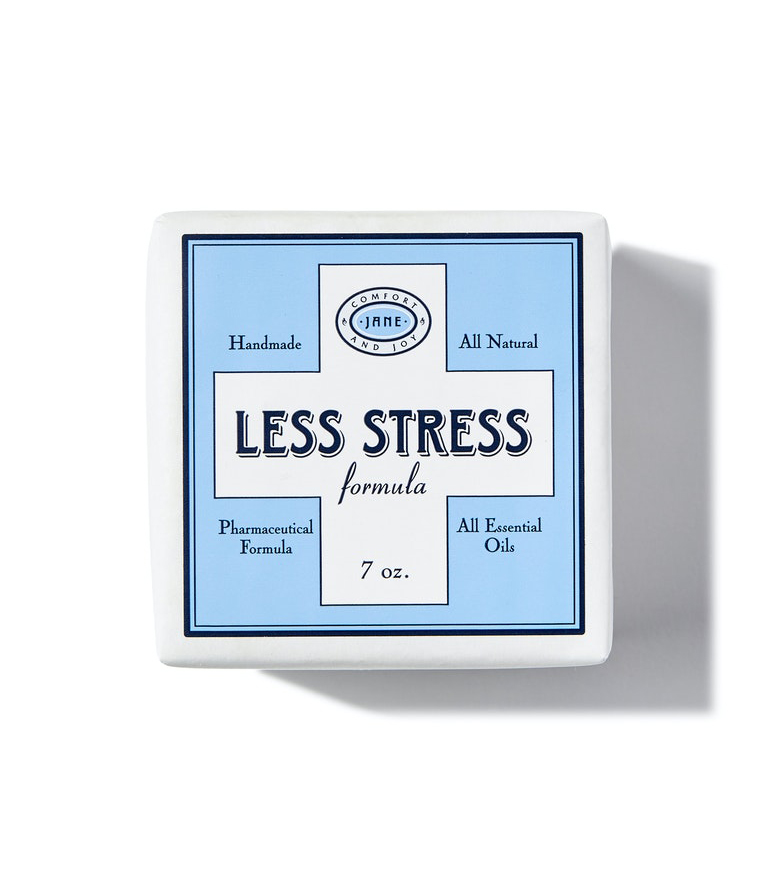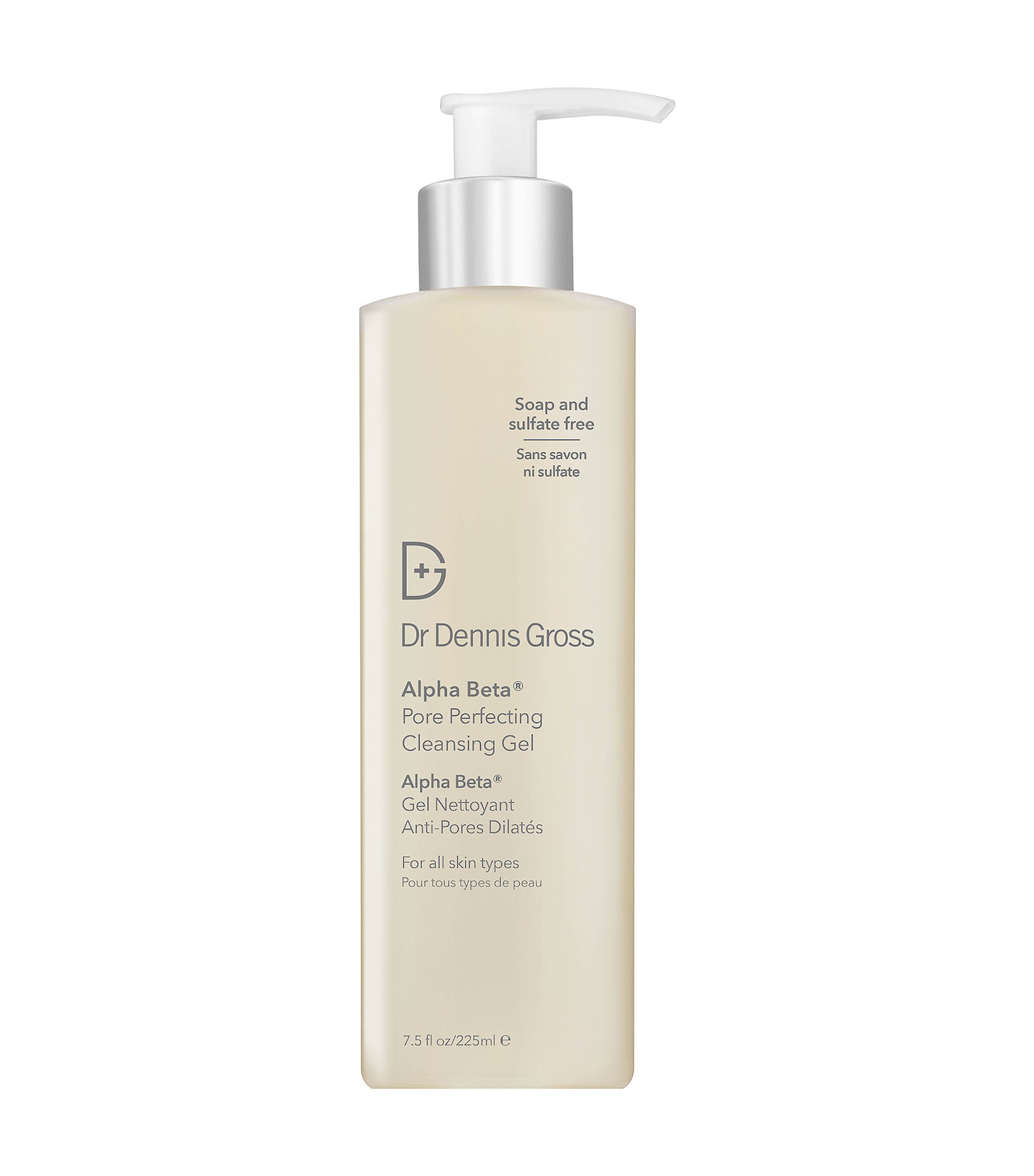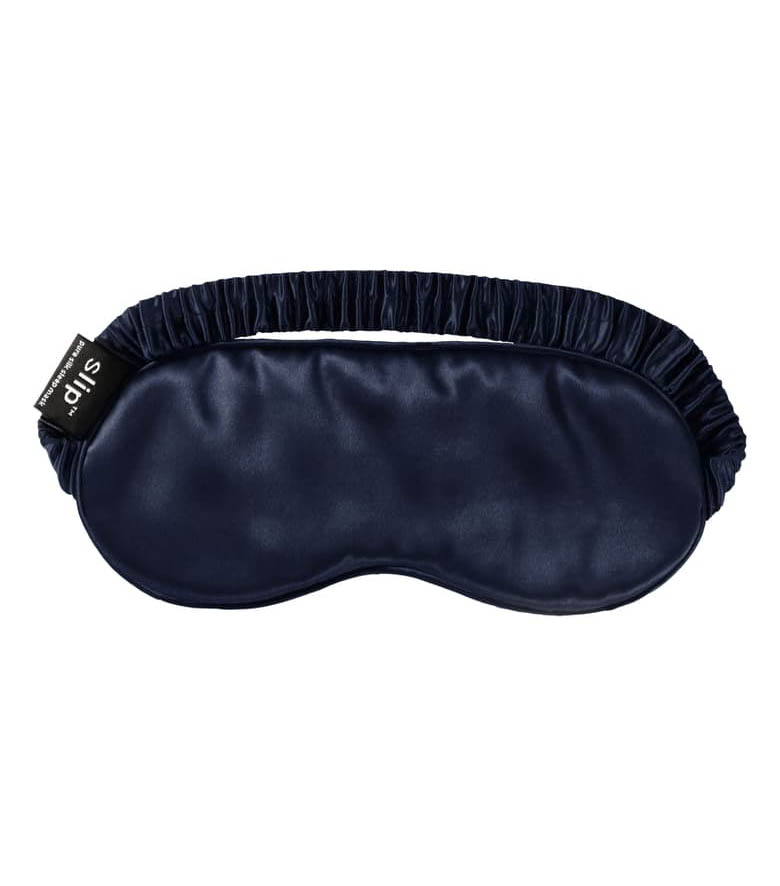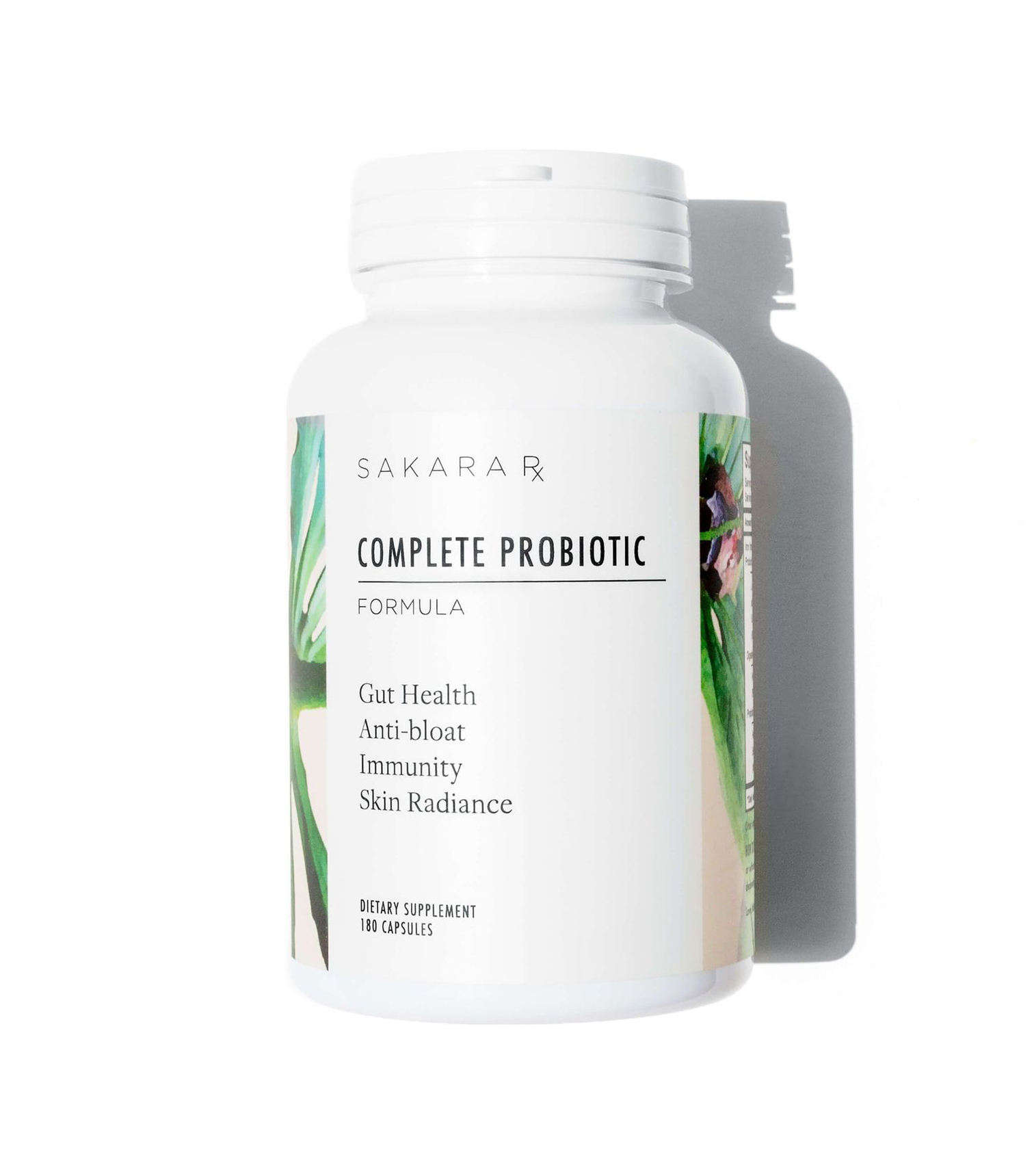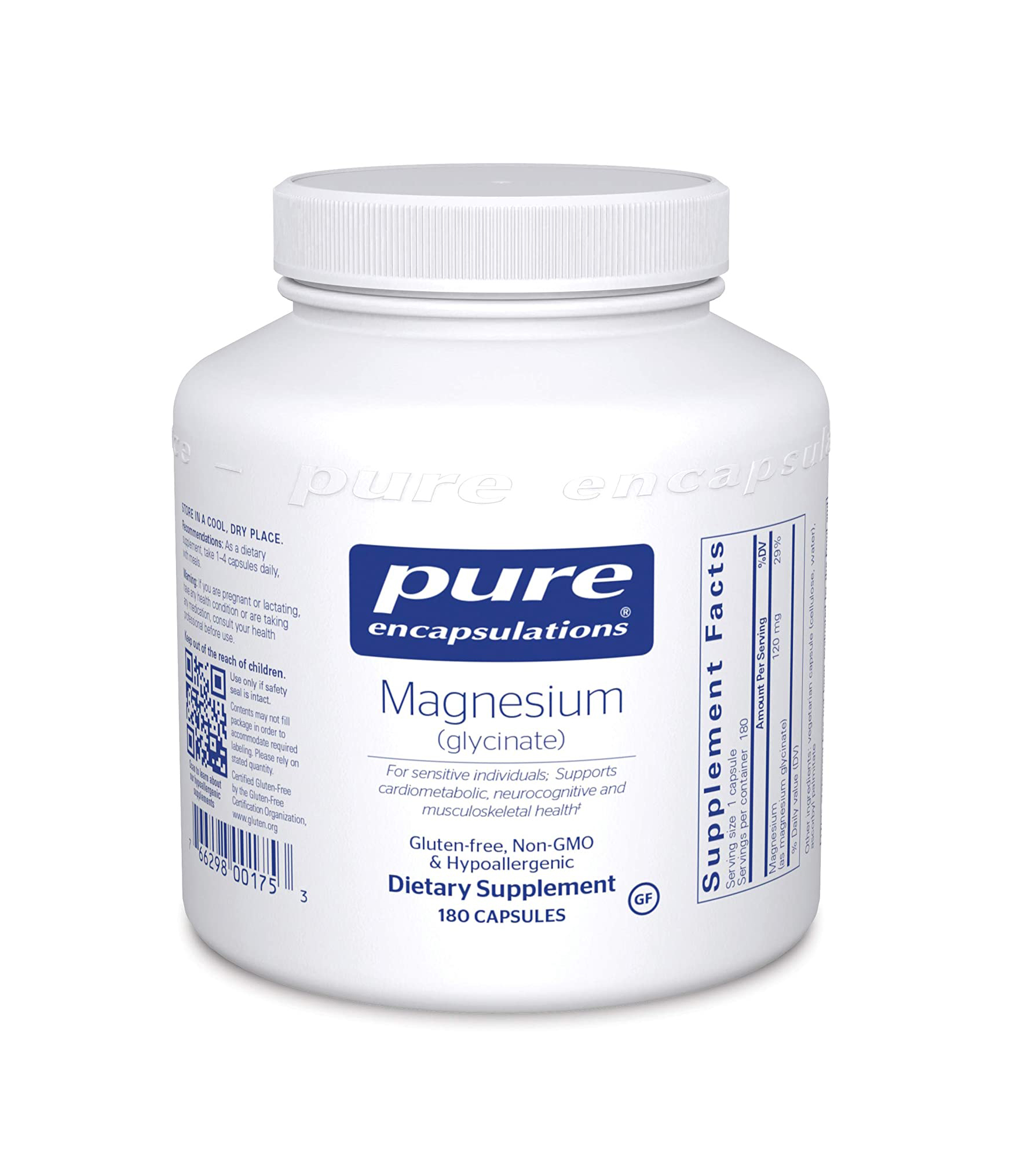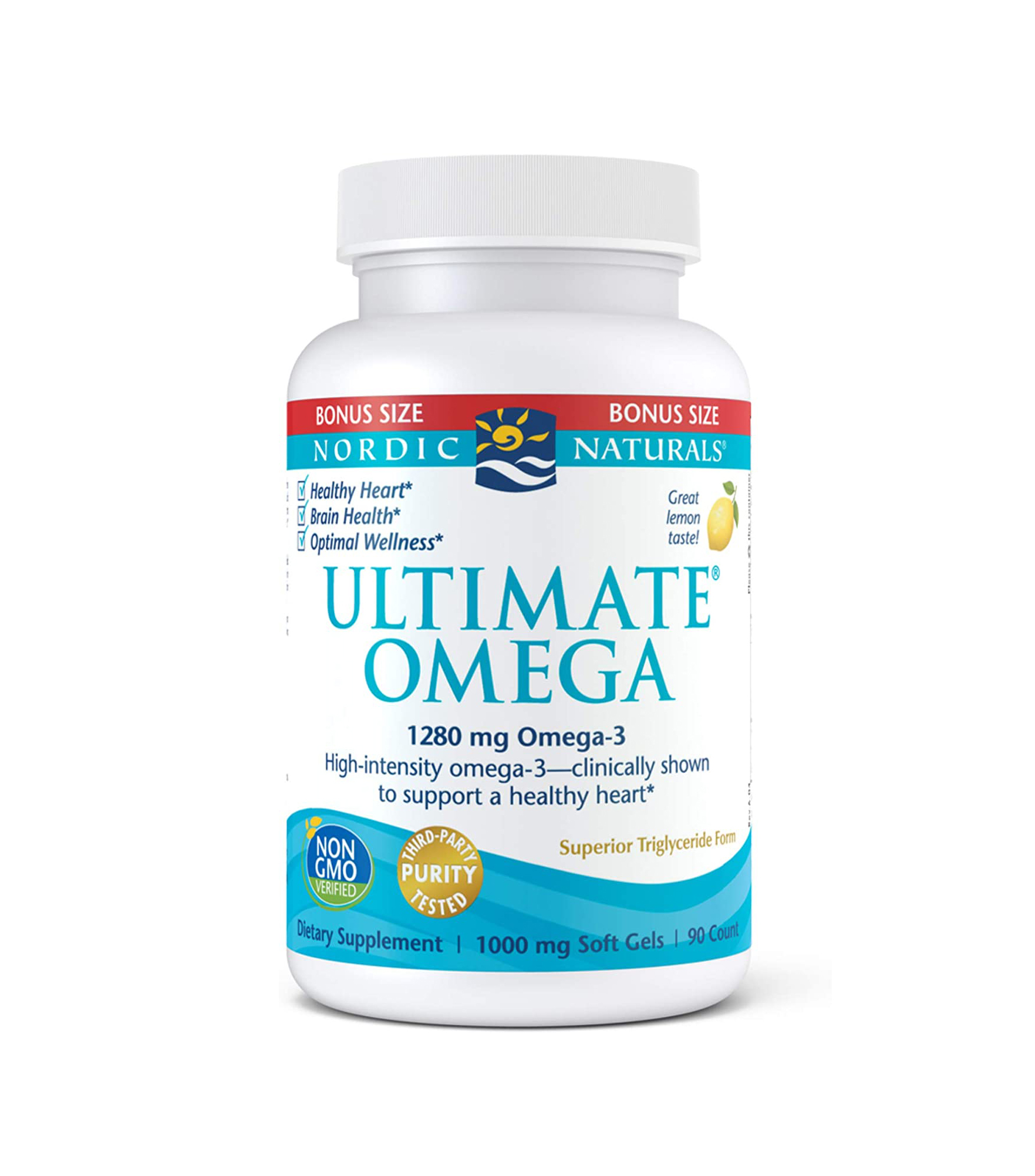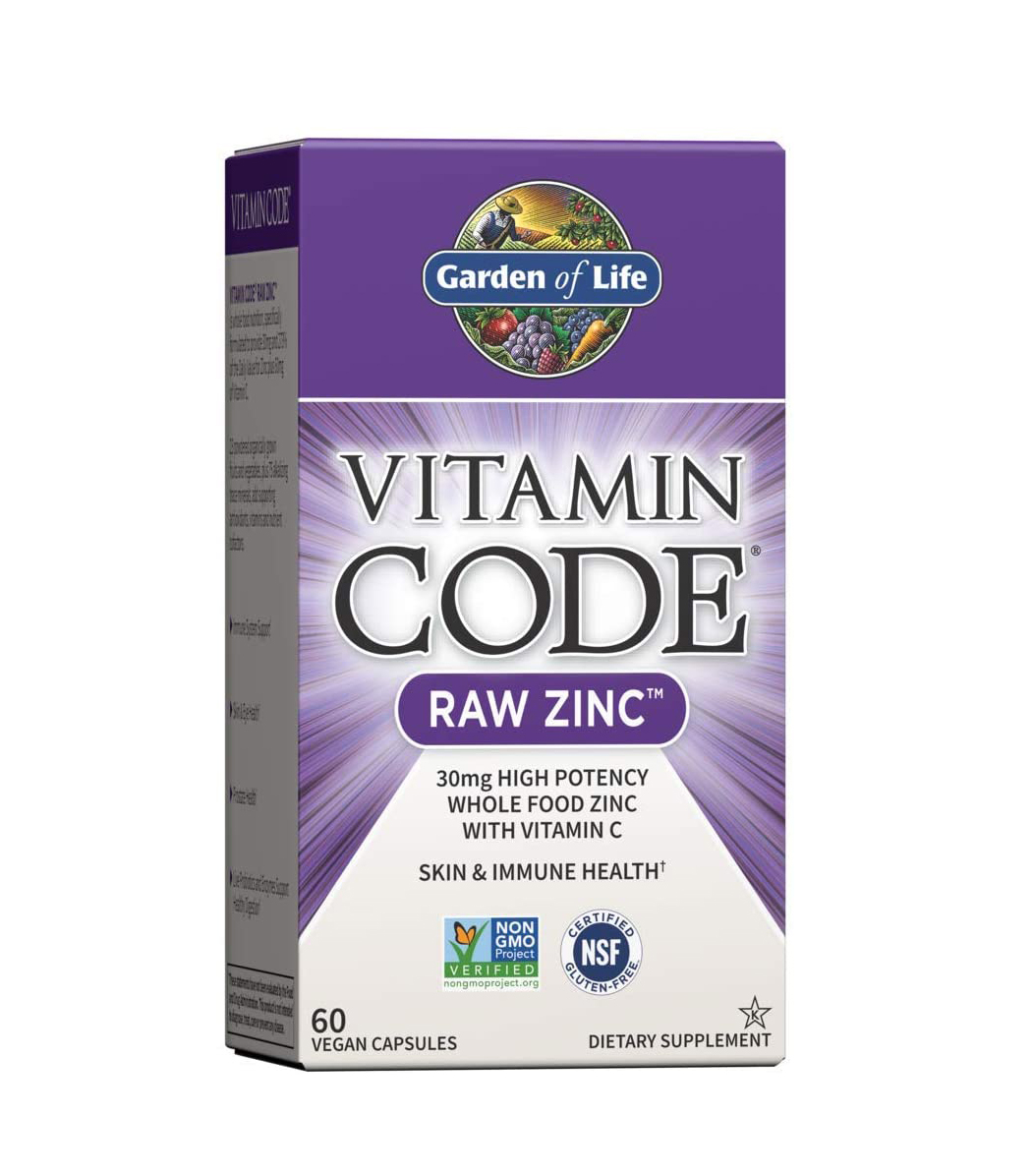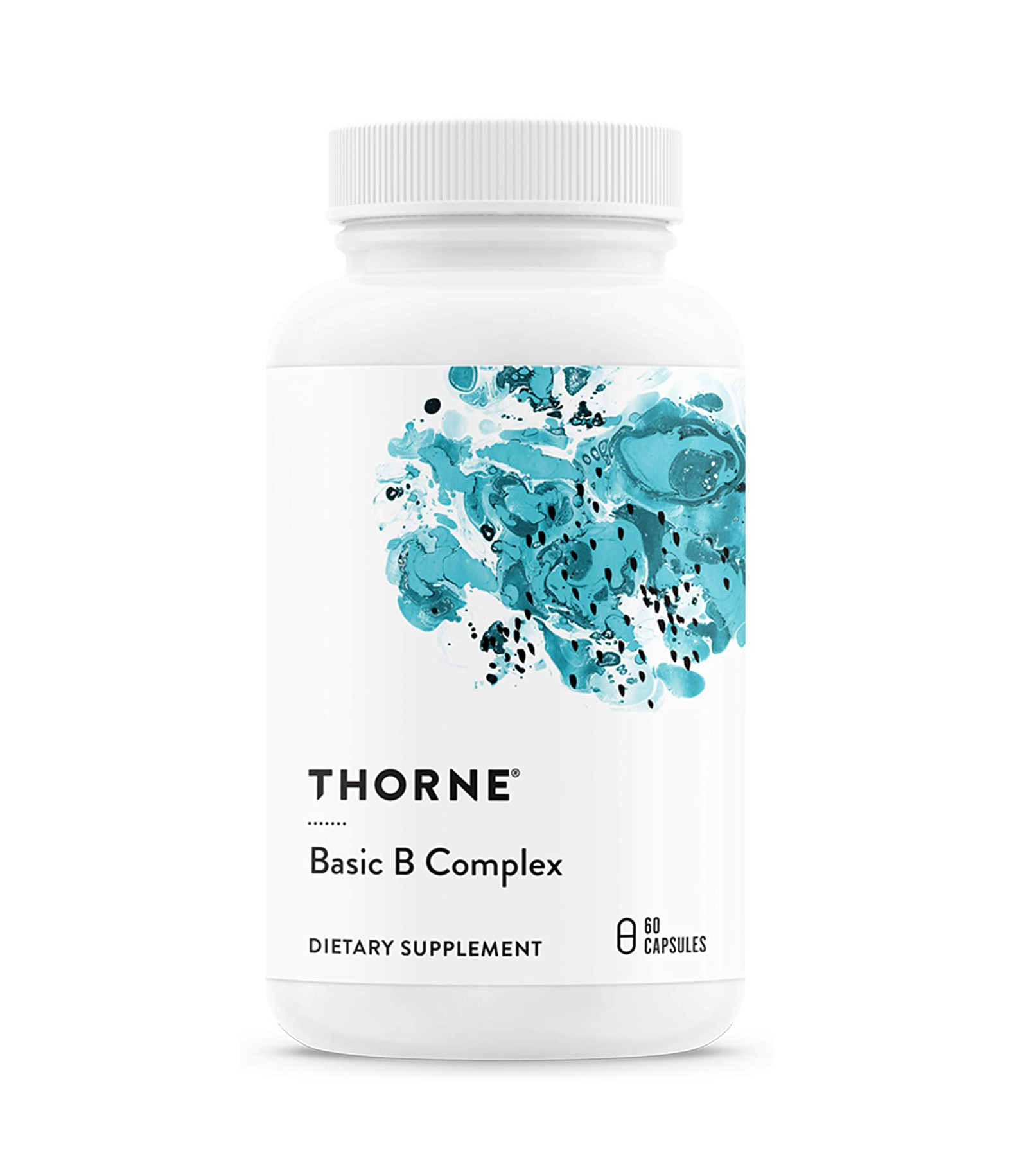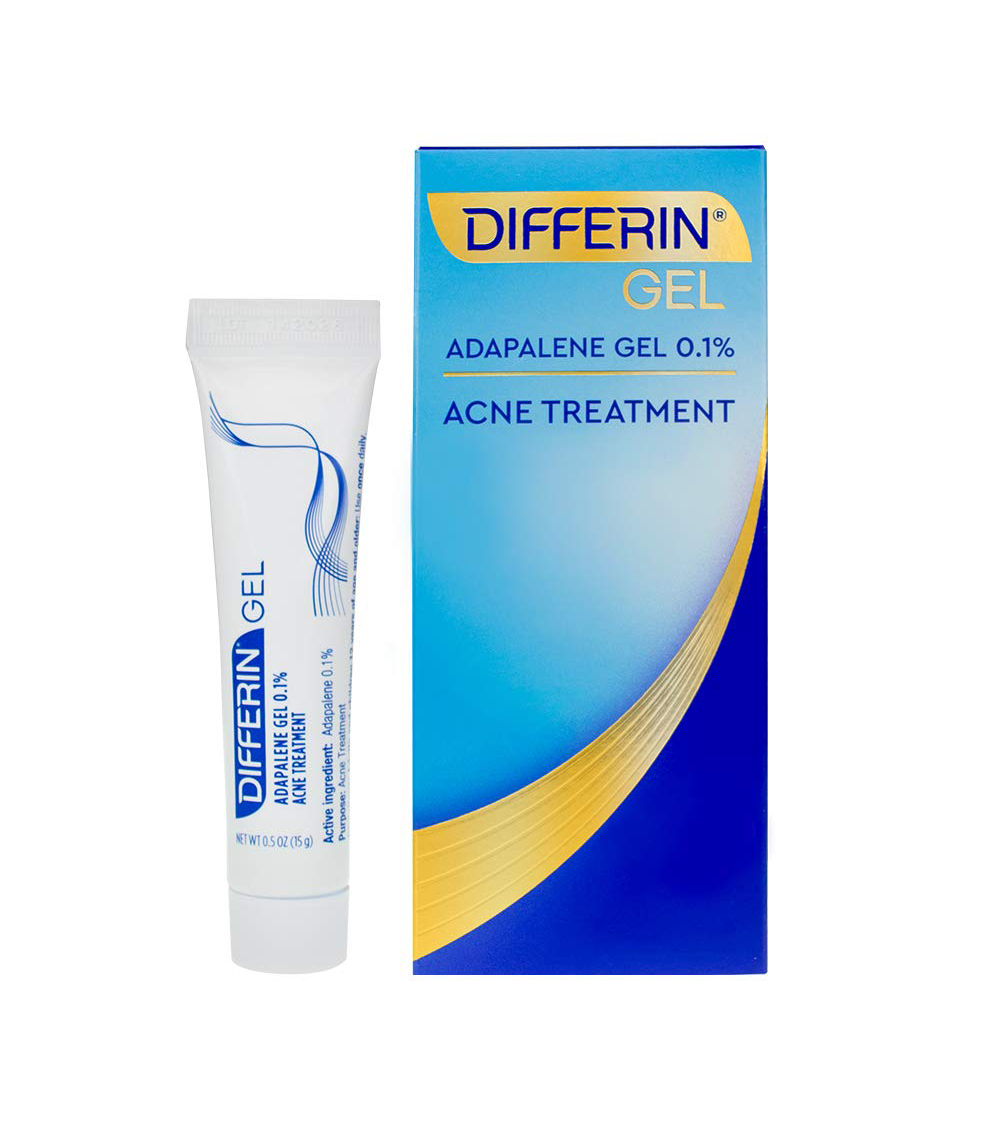8 Things You Can Do to Keep Your Hormonal Acne in Check
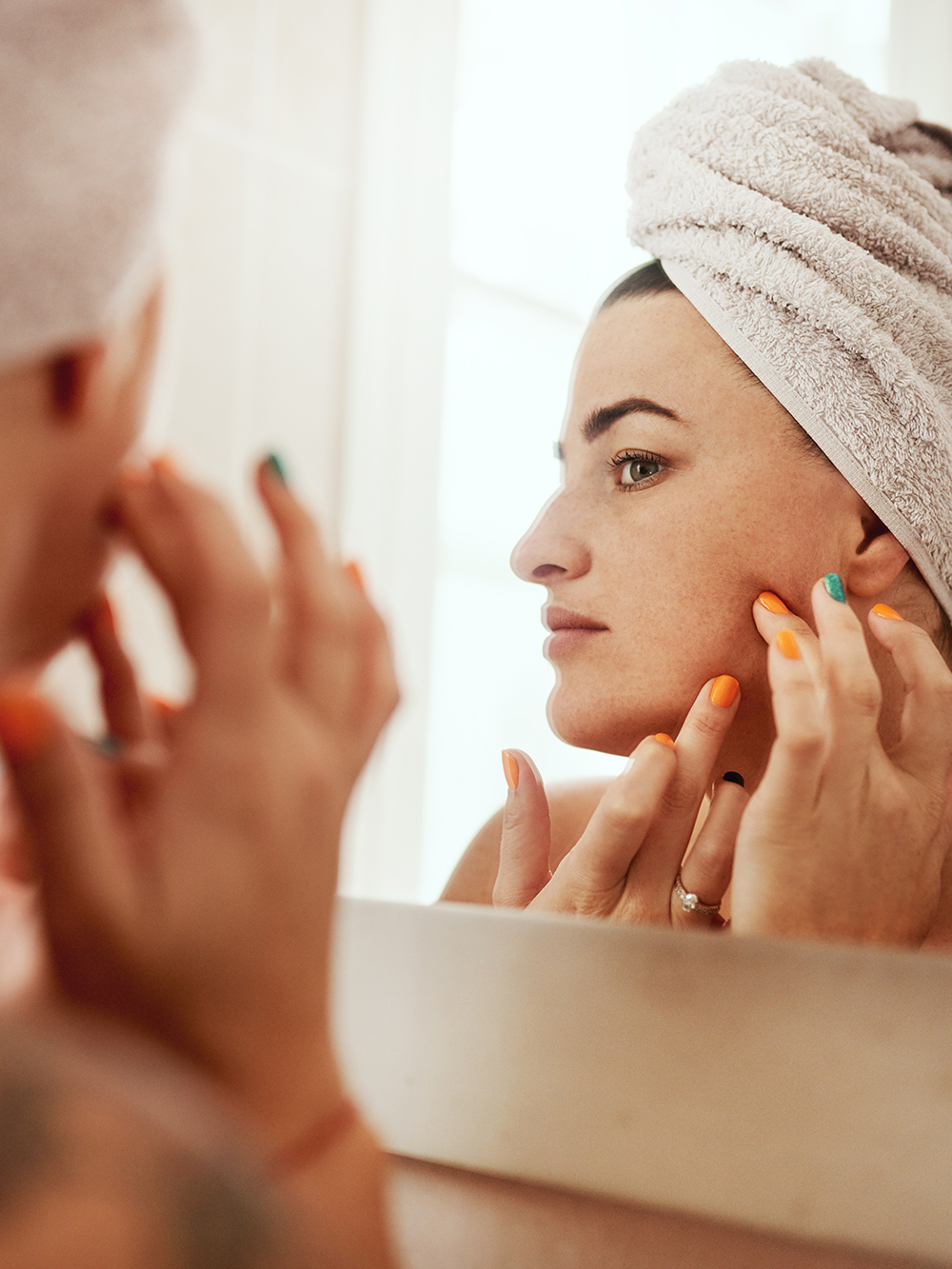
Breakouts are annoying, especially when you have no clue why you're breaking out. But it can be important to figure out the why because it could help you treat your zits successfully. It might be the skincare products you're using. Or maybe you're stressed or haven't gotten a lot of sleep. Your diet might also be a factor, whether you have food sensitivities or you're eating certain foods.
You're definitely not alone, though, when it comes to acne. "Acne affects nearly 50 million Americans annually, with billions of dollars spent on treatments each year, and 54% of adult women and 40% of adult men still report having some form of acne," says Christina Kang, a nutritionist and health coach at Parsley Health.
Another cause of breakouts could be good ol' hormones. Yes, hormonal acne is a thing and affects a lot of people, not just teens. "Whether someone is in puberty, in their mid-30s, or beyond, any acne that occurs due to hormonal fluctuations is considered 'hormonal acne,'" Kang adds.
So how can you tell if the breakouts you're experiencing are from hormones or something else? The experts helped lay it out for us below.
What Is Hormonal Acne?
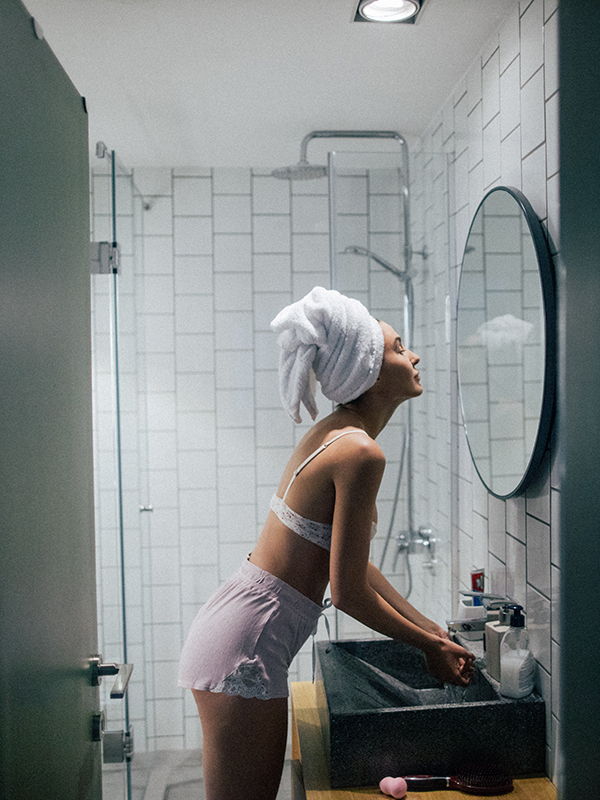
For women, you might notice some pimples around ovulation (mid-cycle) and/or right before you get your period. "This isn't a coincidence. These are the two points in your hormonal cycle when estrogen and testosterone are peaking, and if your body isn't processing these hormones correctly, eliminating the excess, and detoxifying your system, that extra estrogen and testosterone accumulates and results in acne," explains Alisa Vitti, founder of Flo Living (a modern hormone healthcare company) and author of WomanCode and In the Flo. "This happens in two ways: The excess estrogen causes estrogen dominance and skin inflammation, and the extra testosterone plays on your sebaceous glands to produce more oil."
Hormonal acne can look like red papules that are deep-seated and tender, according to Robyn Gmyrek, MD, a board-certified dermatologist at Park View Laser Dermatology. But it can also look like regular acne at times—oily skin, red cysts, nodules, blackheads, and whiteheads. Paying attention to when you break out (in regards to your menstrual cycle) can help you differentiate. Also, where you're getting the acne on your face can provide more clues.
"Breakouts along the chin and jawline are a sign of hormonal acne," Vitti says. "Pimples on the temple are another common sign of a hormonal imbalance that stems from liver congestion due to excess estrogen. If you've got pimples on your forehead, it's usually a sign of a gut imbalance."
What Are the Causes of Hormonal Acne?
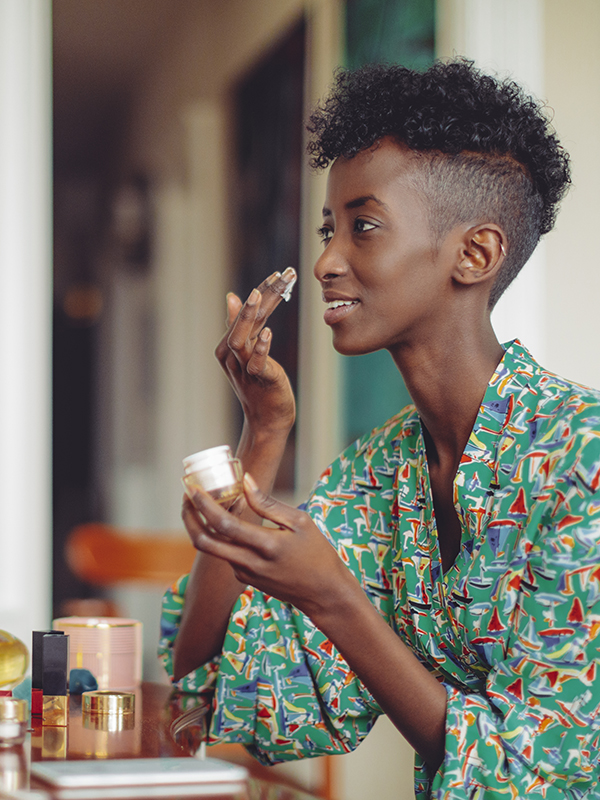
Vitti says that if your body isn't processing the hormones properly during your ovulation or luteal phases, then excess estrogen and excess testosterone can fuel acne. "For women with optimally functioning endocrine systems, these hormonal peaks don't cause a lot of problems. But for women who can't process hormones correctly, acne is often the unwanted result," she explains.
You can experience hormonal acne at any time—in your 20s when you're reaching your prime hormonal years as your body's fertility peaks or even during menopause. "Increased systemic inflammation can also lead to hormonal acne because it leads to increased sebum production, which leads to clogged pores and which then feeds the cycle by creating more inflammation and those deep, painful cysts," Kang says. "On top of all of that, sleep deprivation can play a really big role."
How to Prevent Hormonal Acne
There are some things you can do to try to prevent hormonal acne. It's all about taking a holistic approach.
1. Take a Look at Your Diet

Decreasing your intake of high-glycemic foods, like sugar and refined carbohydrates, may help with acne. "Sugar and refined carbohydrates are rapidly digested and absorbed in your body, which results in a drastic increase in your blood sugar (also known as glucose)," says Tamar Samuels, MS, RDN, NBC-HWC, a registered dietitian, national board–certified health and wellness coach, and co-founder of Culina Health. "Elevated blood glucose triggers a reactive and exaggerated release of the hormone insulin into your bloodstream. High levels of insulin in the blood trigger the release of growth hormones that are known to increase sebum production, unregulated cellular growth, and androgen production, all of which are involved in the development of pimples."
Registered dietitian Claire Virga, RDN, MS, CDN, of Rooted Wellness adds that a diet primarily made up of unprocessed foods and focused on fruits, vegetables, high-fiber legumes, whole grains, healthy fats, and lean protein may provide some protection against hormonal acne.
2. Limit Your Dairy Intake
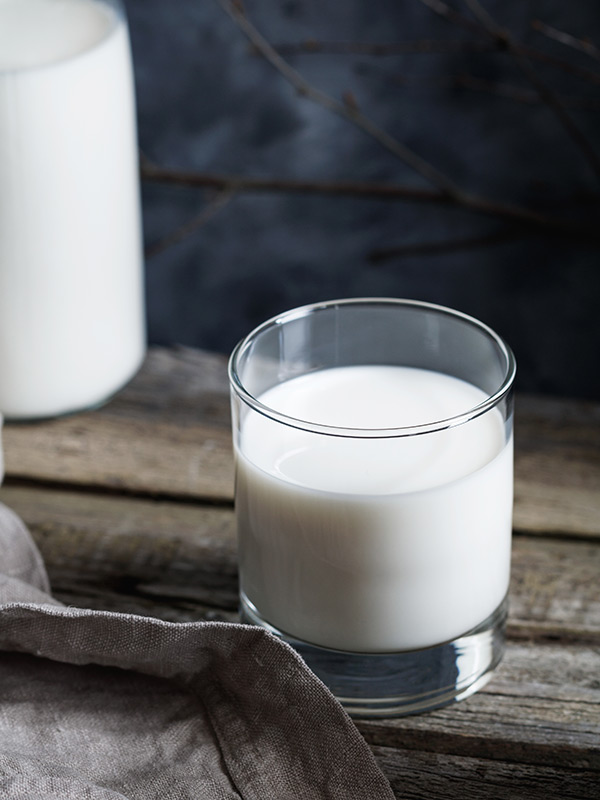
While the research is a bit controversial and mostly comes from observational studies, Samuels says that it does suggest a connection between dairy consumption and acne. It is also unknown how much milk intake can exacerbate acne. "Researchers hypothesize that the association between acne and dairy may be due to the effect of milk on insulin and IGF-1 concentrations in the body, the growth hormones in milk, and/or the body's response to milk protein," Samuels explains. "Specifically, the carbohydrates found in milk are thought to stimulate the release of hormones (androgens, insulin, IGF-1) that increase the production of oil and skin cells that block your pores. Milk also contains several of its own growth-stimulating hormones that may trigger the same hormonal response in the body. In addition, whey and casein (the main proteins found in milk) also have various growth-promoting effects, all of which stimulate a hormonal response in the body that exacerbates acne development."
You don't have to eliminate it altogether, but you may want to consider reducing dairy and seeing if that helps.
3. Detox
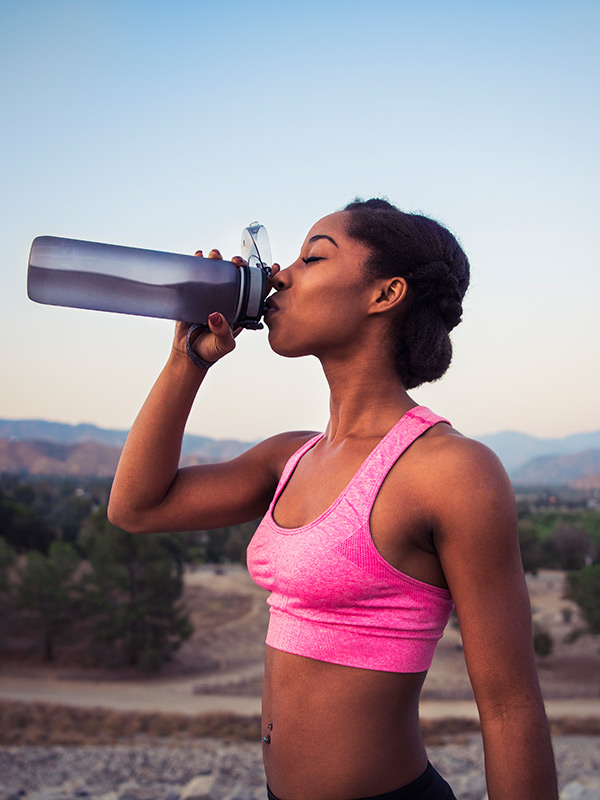
"Reduce your toxin burden as much as possible, especially the endocrine disrupters such as BPA, parabens, and phthalates," Kang suggests. "Don't forget these can be hidden in your cosmetics as well. The Environmental Working Group has a clean list for almost everything (e.g., cleaning products, cosmetics, food)."
4. Manage Stress
"Stress increases cortisol levels, which disrupts overall hormone balance and may contribute to acne. Ever broken out before a big presentation or life event? This is likely why!" Virga says. "We are all dealing with stress on a regular basis (especially now during a pandemic!). To reduce stress, try to take time each day for a self-care activity such as meditation, a walk outdoors, or a yoga class. Find what works for you and schedule it into your calendar like you would a meeting!"
5. Make Your Skin Routine Cyclical
"Your skin's thickness, oil production, and collagen levels all shift predictably each phase of your menstrual cycle. Your skincare must shift to reflect that," Vitti says. Her book, In the Flo, has more details about how to update your skincare.
6. Get More Sleep
"Lack of sleep also may increase cortisol and lead to hormone imbalances that cause acne. Aim to get seven to eight hours of sleep per night," Virga says.
7. Take Probiotics
Probiotics may help improve acne by reducing inflammation, improving gut health, and balancing hormones. "Acne patients have been found to have lower levels of lactobacillus and bifidobacterium bacteria, so adding a lacto-bifido blend to your diet may be helpful," Kang says. "There is limited research into topical probiotics, but in theory, topical probiotic treatments can be effective at reducing acne count and severity because they increase moisture and skin barrier function in healthy skin."
You can consume probiotics through your food or supplementation.
8. Try Supplements
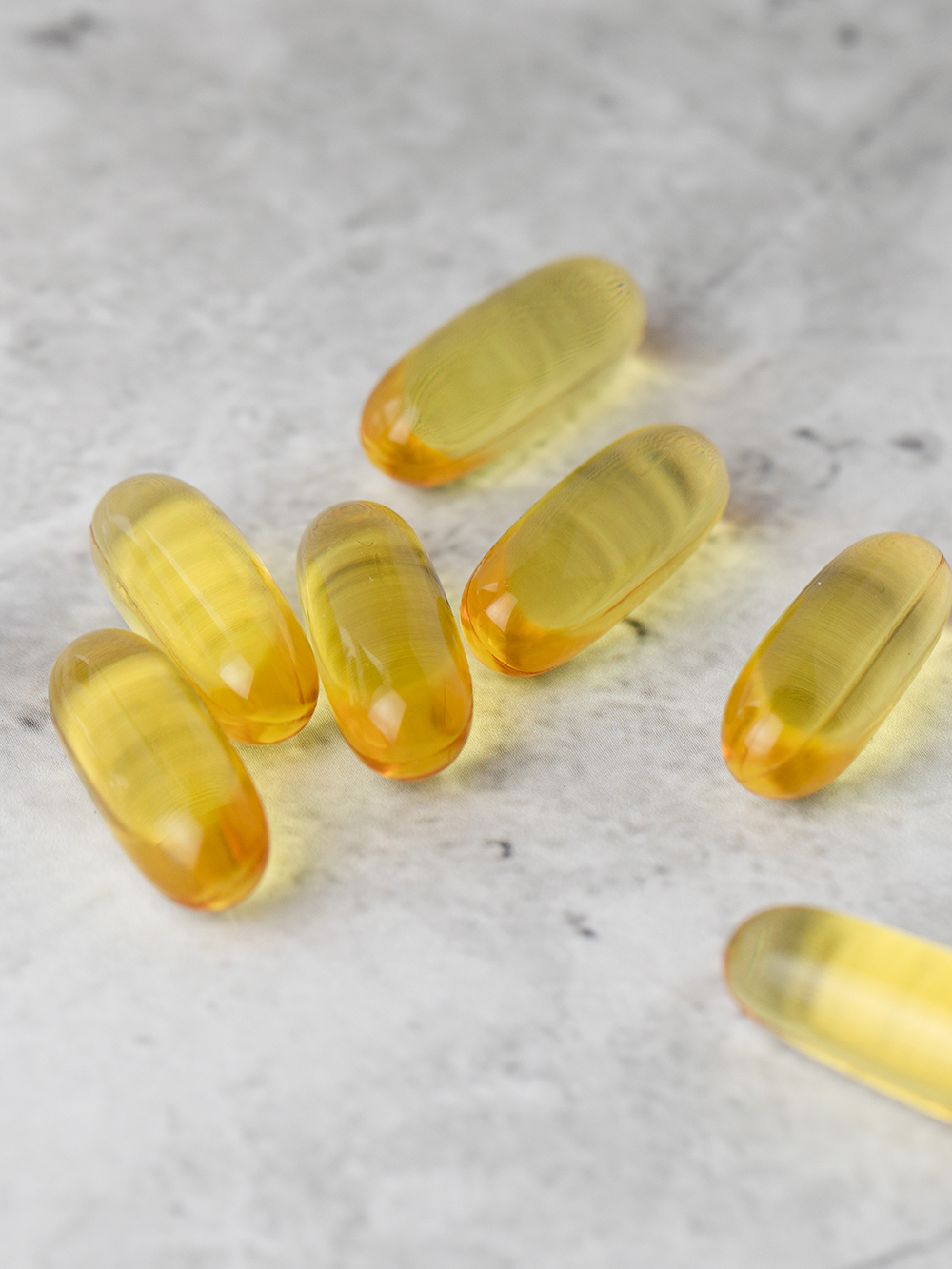
Vitti says the right supplementation can help improve your acne. These are some she recommends, after 20 years of research and from dealing with her own severe cystic hormonal acne.
Magnesium: "A lack of magnesium causes skin inflammation," Vitti says. "Taking magnesium with calcium combined in supplement form can lower the amount of C-reactive proteins in your body, which cause this inflammation. Calcium is part of our tissue matrix—bones, cells, and skin—and is very important for skin cell renewal."
Omega-3s: You can get omega-3 fatty acids through fish or flax oil. Vitti says you'll see almost instant results—clearer, softer, and smoother skin within days. You might also notice stronger hair and nails.
Zinc: Vitti says a zinc deficiency is common for many women. This can cause our pores to be easily irritated by bacteria, and you might experience redness. "A large-scale scientific study concluded that zinc supplementation is very effective, even when compared to commonly prescribed antibiotics," she says. "I also recommend having a little bit of grass-fed liver every week as part of a meal or as a snack. It's full of copper and vitamin A. The copper will balance out the zinc in your body, and the vitamin A is what your liver needs to detoxify from excess hormones. A well-functioning liver boosts your absorption of all vitamins and minerals and prevents deficiencies developing in the first place."
B vitamins: "Your skin needs B vitamins to regenerate and renew, as they provide the energy all of your cells need for fuel," Vitti says. "Taking a good B complex every day that includes a high level of B6 will target hormonal and premenstrual acne. B6 prevents skin inflammation and overproduction of sebum (the oil your skin produces that can create acne issues)."
How to Treat Hormonal Acne
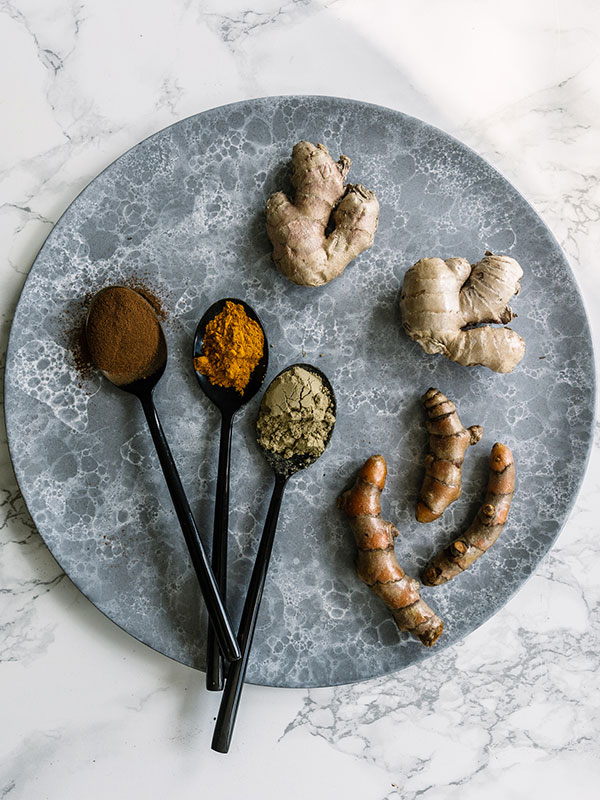
Taking all the preventative steps above will help you get your hormonal acne under control. But if you're dealing with a breakout right now, you can look into a couple of these treatment options.
Acupuncture or herbs: Mona Dan, LAc, MTOM, herbalist, acupuncturist, and founder of Vie Healing, says both of these may help take care of your hormonal acne. "It's interesting to see that with different patients the hormonal acne comes up within the different times of the cycle," she adds. "Some people get their acne when they begin menstruation, others during ovulation, while others experience their acne right before or after their cycles. All these symptoms give us a deeper understanding of what the root cause is."
Check your liver function: "If you are working with a doctor, you can also ask them to look into your liver function," Kang says. "Since the skin is a channel for excreting toxins, breakouts can sometimes occur if the liver is not functioning efficiently. The toxin overload can wreak havoc on the skin."
Topical treatments: These may help in the short-term, but that doesn't mean they'll stop hormonal acne appearing during your next cycle. "Topical medications for acne include those with benzoyl peroxide, topical vitamin A derivatives such as retinol and adapalene (Differin), salicylic acid, and niacinamide," Gmyrek says. "I recommend that you give a topical acne regimen at least eight to 12 weeks of continual use to see if it is effective. In my experience taking care of patients with hormonal acne, these topicals are helpful and improve excess oil and blackhead and whitehead formation, but when there is a hormonal surge in the body at a specific time in a woman’s menstrual cycle, for example, the acne cysts will not be prevented from erupting on the skin by this regimen."
Prescription medication: "For women who have hormonal acne, they are typically prescribed ointments such as retinoid or birth control pills to level out their hormones," says Zaher Merhi, MD, founder of Rejuvenating Fertility Center. Since every patient is different, Merhi says you should see a dermatologist before proceeding with any medications.
Can Hormonal Acne Be a Sign of Something Else?

In some cases, your hormonal acne might be a sign of another condition, but it is usually accompanied by other symptoms. "It can be a sign of a condition called polycystic ovary syndrome or a hormone-producing tumor," Gmyrek says. "However, this would rarely present without other signs of androgen excess such as androgenetic alopecia or hair loss, irregular or absent periods, or hirsutism, which is excess hair growth on the body and face."
Next up: How to Balance Hormones Naturally, According to Experts
This article is provided for informational purposes only and is not intended to be used in the place of advice of your physician or other medical professionals. You should always consult with your doctor or healthcare provider first with any health-related questions.
Sarah is lifestyle writer and editor with over 10 years of experience covering health and wellness, interior design, food, beauty, and tech. Born and raised in Los Angeles, she attended New York University and lived in New York for 12 years before returning to L.A. in 2019. In addition to her work at Who What Wear, she held editor roles at Apartment Therapy, Real Simple, House Beautiful, Elle Decor, and The Bump (sister site of The Knot). She has a passion for health and wellness, but she especially loves writing about mental health. Her self-care routine consists of five things: a good workout, “me” time on the regular, an intriguing book/podcast/playlist to unwind after a long day, naps, and decorating her home.
